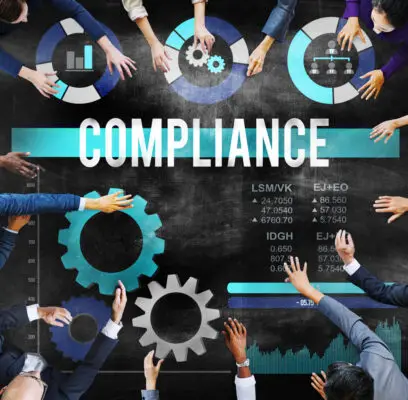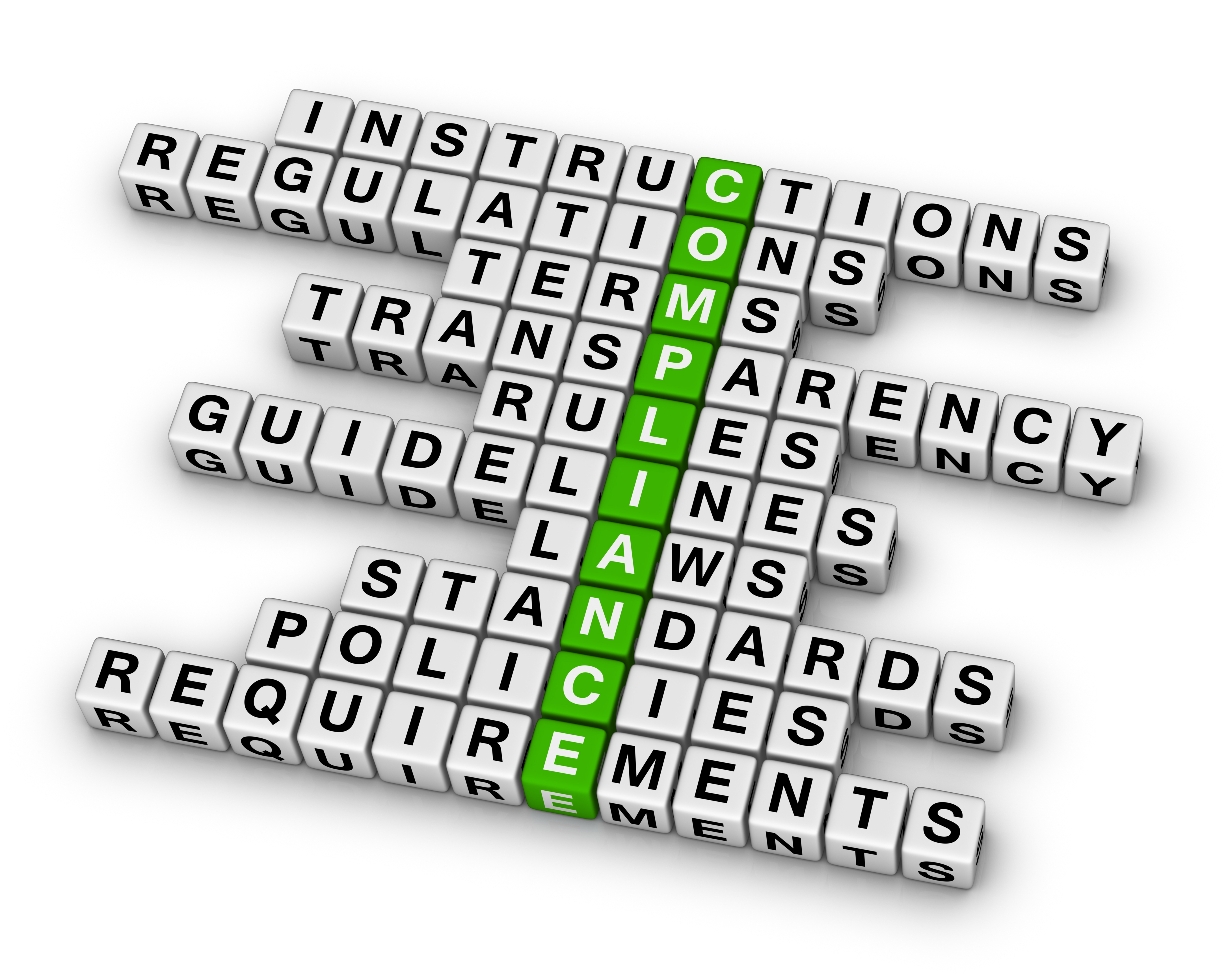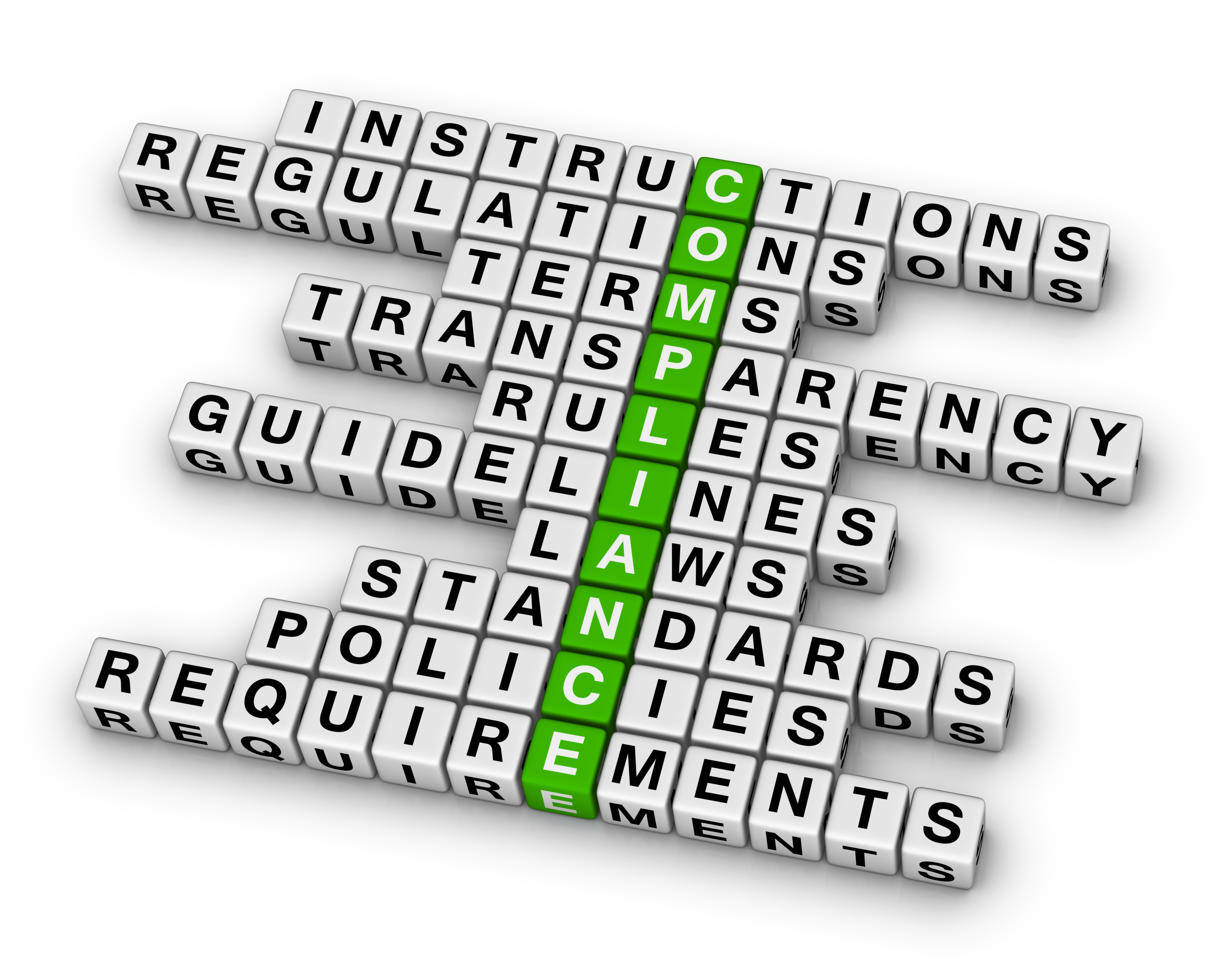Compliance requirements refer to the set of rules and regulations that organizations must follow in order to ensure ethical behavior and legal compliance. Compliance requirements are important for any business, as they help maintain transparency, accountability, and prevent financial losses due to legal violations.
In this article, we will explore the definition of compliance requirements, different types of compliance requirements, how to create a compliance program, monitor and report on it effectively, and keep up-to-date with changing regulations.
Understanding the intricacies of compliance requirements can be challenging for businesses as there is no one-size-fits-all approach. Organizations must take into account their size, industry sector, geographic location, and other factors when designing their compliance programs.
Failure to comply with these regulations can lead to hefty fines or even criminal charges against the organization or its employees.
Therefore it is imperative for businesses to have a clear understanding of what comprises compliance requirements so that they can create an effective strategy to stay compliant at all times.

Understanding Compliance Requirements
Compliance requirements are a set of guidelines that companies must follow to comply with industry standards, laws, regulations, and policies. These requirements can be internal or external; they may come from government agencies, industry associations, or even best practices.
Compliance audits are an essential part of compliance requirements. They assess a company’s compliance with relevant laws and regulations by reviewing its policies, procedures, and systems.
Audits determine whether an organization is following the rules that govern its operations appropriately. Through this process, organizations can identify areas where they need to improve their performance.
Risk assessment is also crucial when it comes to compliance requirements. Companies must evaluate the risks associated with non-compliance for their business operations proactively.
This includes identifying potential threats that could lead to legal penalties or reputational damage if not handled correctly. Risk assessment helps companies develop strategies that mitigate these risks by creating appropriate controls or processes for managing them effectively without disrupting their operations.
Overall, compliance requirements play a critical role in ensuring organizations operate ethically and transparently while mitigating any potential risks associated with non-compliance.
Types of Compliance Requirements
Compliance requirements can take many forms, but generally fall under two categories: legal implications and regulatory landscape.
Legal implications refer to the laws that govern a specific industry or profession, such as healthcare or finance. For example, the Health Insurance Portability and Accountability Act (HIPAA) sets forth strict guidelines for protecting patients’ medical information.
Regulatory landscape refers to the various federal agencies responsible for overseeing different industries and professions. In some cases, these agencies work in conjunction with one another to ensure that businesses are operating ethically and legally.
For example, banks must comply with regulations set forth by both the Federal Reserve and the Office of Comptroller of Currency (OCC).
Compliance requirements refer to the laws, regulations, standards, and other rules that organizations must follow. These requirements can come from various sources, such as governments, regulatory bodies, industry standards, and contractual obligations. Here are several types of compliance requirements:
Government Regulations: These are laws and rules enacted by government bodies at the local, regional, or national level. For instance, companies must comply with tax laws, labor laws, environmental laws, and health and safety regulations.
Industry-Specific Regulations: Certain industries have additional regulations. For example, the healthcare industry must comply with laws like the Health Insurance Portability and Accountability Act (HIPAA) in the U.S., while the financial services industry must comply with regulations such as the Sarbanes-Oxley Act, the Dodd-Frank Act, and regulations set by the Securities and Exchange Commission (SEC).
International Regulations: For companies operating internationally, they must comply with the regulations of all countries they operate in. This can include regulations like the General Data Protection Regulation (GDPR) in the European Union, which applies to any company dealing with EU citizens’ data.
Data Protection and Privacy Laws: With the increasing importance of data in business, laws have been enacted to protect the privacy and integrity of data. Examples include the GDPR in Europe, the California Consumer Privacy Act (CCPA) in the U.S., and many others around the world.
Contractual Obligations: Contracts with clients, partners, or suppliers often include compliance requirements. For instance, a contract might require a company to maintain certain security standards or comply with certain ethical guidelines.
Corporate Governance Standards: These are standards and best practices that guide how a company is run. They cover areas such as board structure, shareholder rights, and executive compensation. Compliance is often voluntary but can impact how the company is perceived by investors, shareholders, and the public.
Ethical and Social Responsibility Standards: These standards, such as those related to human rights, labor practices, environmental responsibility, and fair trade, often go beyond legal requirements. While compliance is often voluntary, companies can face significant reputational damage if they fail to meet these standards.
Quality Standards: Organizations may need to comply with quality standards such as ISO 9001, which sets out the criteria for a quality management system and is based on a number of quality management principles including a strong customer focus, the involvement of top management, a process approach, and continual improvement.
These agencies work together to ensure that banks are following all necessary protocols related to risk management, compliance reporting, customer protection, anti-money laundering measures, among others.
Understanding compliance requirements is critical for any business or individual working within a regulated industry or profession. Failing to comply with relevant laws and regulations could result in hefty fines and damaged reputations.
It is important for individuals working within these fields to stay up-to-date on changing regulations so they can remain compliant at all times. This requires constant vigilance and attention to detail as new laws may be passed or existing ones amended over time.
Creating a Compliance Program
Establishing a comprehensive framework for adherence to regulatory guidelines is crucial for mitigating legal and reputational risks associated with operating within regulated industries.
This framework is known as a compliance program, which consists of policies, procedures, and controls that ensure an organization’s compliance with applicable laws and regulations.
The first step in creating a compliance program is conducting a risk assessment to identify potential areas of non-compliance.
Once the risks have been identified, the next step is to develop policies and procedures that address these risks. These policies should clearly outline what employees are expected to do in order to comply with the regulations, as well as what steps they should take if they suspect any violations.
Employee training is also an important component of a compliance program since it ensures that everyone understands their roles and responsibilities when it comes to compliance.
In addition to policies and employee training, monitoring and auditing are also key components of a successful compliance program. Regular audits can help identify areas where improvements can be made, while ongoing monitoring helps ensure that employees continue to follow established procedures.
Implementing a comprehensive compliance program that includes risk assessments, policies and procedures, employee training, monitoring, and auditing organizations can minimize their legal and reputational risks while promoting ethical behavior among their employees.
Monitoring and Reporting Compliance
Monitoring and reporting compliance is a critical aspect of organizational governance that enables stakeholders to assess the effectiveness of an organization’s adherence to regulatory guidelines and ethical standards.
Compliance audits are an essential tool for monitoring compliance as they provide an independent assessment of whether an organization’s policies, procedures, and practices are in line with legal requirements and industry best practices. These audits can be conducted internally by the organization or externally by third-party auditors.
Compliance software is another vital component of monitoring and reporting compliance. It helps organizations automate their compliance processes, including tracking regulatory changes, managing risk assessments, creating policies and procedures, documenting training programs, and generating reports.
Compliance software can also assist in identifying potential issues before they become problems by providing real-time alerts about non-compliant activities or policy violations.
In today’s business environment where regulations continue to evolve rapidly, it is crucial for organizations to monitor their compliance efforts continually.This allows them to take corrective action quickly before any serious consequences arise.
Effective monitoring and reporting of compliance help ensure that organizations operate ethically within legal boundaries while minimizing risks associated with non-compliance.

Staying Up-to-Date with Compliance Requirements
Changes in regulations and laws, industry best practices and standards, and seeking expert advice and guidance are key points that should be taken into consideration.
Organizations must keep abreast of new regulatory developments, adopt industry benchmarks, and seek professional guidance to ensure they comply with current rules and regulations.
Changes in Regulations and Laws
The legal landscape continuously evolves, bringing about modifications to regulatory frameworks and legislative statutes that govern organizational conduct.
These changes in regulations and laws pose compliance challenges for businesses as they struggle to keep up with the new requirements while ensuring that their operations remain compliant.
Failure to meet compliance requirements can lead to hefty penalties, reputational damage, and loss of business.
To stay on top of these changes, companies must maintain an effective compliance program that includes regular reviews of existing policies and procedures, training employees on new regulations or laws, and conducting internal audits to identify areas where improvements are needed.
Additionally, companies must stay informed about industry-specific regulations that may affect their operations. This requires regularly monitoring government websites and industry publications for updates on new regulations or laws that may impact their business.
Three important considerations for businesses regarding changing compliance requirements are:
1) Compliance education: Businesses need to train their employees on the latest regulatory changes so everyone understands what is expected of them.
2) Risk assessments: Companies should perform regular risk assessments to identify any areas where they may be vulnerable or at risk of non-compliance.
3) Flexibility: As regulatory frameworks change rapidly, it’s crucial for companies to be flexible enough to adapt quickly by updating policies and procedures accordingly.
Industry Best Practices and Standards
Industry best practices and standards play a critical role in implementing compliance measures that ensure organizations adhere to ethical principles. Compliance standards are developed by regulatory bodies, industry associations, and professional organizations to set guidelines for ethical behavior in the workplace.
Organizations that implement these standards benefit from improved transparency and accountability, which fosters trust with stakeholders such as investors, customers, and employees.
The benefits of compliance standards extend beyond meeting legal requirements. These standards also help organizations manage risks associated with unethical behavior such as reputational damage, financial loss or legal liability.
Companies that prioritize ethical conduct have been found to have higher employee engagement levels and lower turnover rates than those who do not.
Additionally, adherence to compliance measures demonstrates an organization’s commitment to corporate social responsibility (CSR) which can improve its reputation among consumers and increase brand loyalty.
Seeking Expert Advice and Guidance
After discussing industry best practices and standards, it is important to recognize that achieving compliance with these requirements can be challenging for organizations.
Compliance challenges may include navigating complex regulations, keeping up with changes in standards, and implementing necessary controls within the organization.
To address these challenges, seeking expert advice and guidance can be a crucial step towards successful compliance. Compliance strategies often involve partnering with consultants or legal experts who have a deep understanding of regulatory requirements and can provide guidance on how to implement necessary controls.
These experts can also help organizations stay up-to-date with changes in regulations and advise on best practices for maintaining compliance over time.
Additionally, some organizations may choose to join industry associations or participate in peer groups to share knowledge and collaborate on compliance initiatives.
Frequently Asked Questions
How do compliance requirements differ among different industries?
Industry specific variations in compliance requirements are driven by a range of regulatory challenges. Different industries must adhere to unique regulations that govern their operations, leading to varying compliance requirements.
For instance, the financial sector is subject to stringent regulations such as the Sarbanes-Oxley Act (SOX) and the Dodd-Frank Wall Street Reform and Consumer Protection Act, which require public companies to maintain accurate financial records and disclose them publicly.
However, healthcare providers must abide by the Health Insurance Portability and Accountability Act (HIPAA), which protects patient privacy and security of electronic health information. Similarly, food industry players are subject to FDA regulations that mandate adherence to strict quality control standards for safety reasons.
What are the consequences of non-compliance with regulatory requirements?
Non-compliance with regulatory requirements can lead to serious legal repercussions and financial penalties. Ignoring the compliance regulations in any industry represents a negligent attitude towards the law, which could result in hefty fines for companies or individuals.
It is essential to understand that non-compliance is not an option; it’s a violation of laws and regulations set up by governing bodies designed to keep businesses and the public safe from harm.
The consequences of non-compliance can be severe, ranging from loss of reputation, business closure, financial losses, lawsuits, and even jail time for individuals involved in illegal activities.
How do compliance requirements affect small businesses?
The impact of compliance on profitability is significant for small businesses. Failure to comply with regulatory requirements can result in fines, legal fees, and loss of reputation.
Small businesses must prioritize compliance by implementing strategies that mitigate risks associated with non-compliance. These strategies include staying up-to-date with regulations, conducting regular audits, and investing in compliance management software or outsourcing to third-party experts.
While the cost of compliance may be high initially, it can ultimately lead to increased profitability by avoiding costly penalties and maintaining a positive reputation within the industry.
Are there any international compliance requirements that companies should be aware of?
Global compliance standards are becoming increasingly important for companies operating across borders. Companies must adhere to the legal and ethical requirements of each country in which they operate, as well as any international laws or regulations that apply to their business.
Cultural considerations also play a role in compliance, as different countries have varying norms and expectations regarding business conduct. It is essential for companies to understand and comply with these global standards to avoid legal and reputational risks.
How can technology be used to ensure compliance with regulatory requirements?
Automation benefits and data security measures can be used to ensure compliance with regulatory requirements. Despite concerns of potential job loss due to automation, the benefits of using technology for compliance management cannot be overlooked.
Automation allows for more efficient and accurate monitoring, reporting, and analysis of compliance activities. Furthermore, implementing data security measures ensures that sensitive information is protected from unauthorized access or breaches. These measures include encryption, access controls, and regular backups.

Conclusion
Compliance requirements are essential for businesses to operate ethically and legally. Compliance programs must be created to ensure that all regulations are met, and monitoring and reporting must be done regularly to maintain compliance. Failure to comply with these requirements can result in severe consequences such as fines, legal action, or damage to the company’s reputation.
To stay up-to-date with compliance requirements, companies must continuously educate themselves on new regulations and changes in existing ones. This involves investing time and resources into research and training programs.
Overall, compliance requirements may seem daunting at first glance but are necessary for the success of any business. Creating a comprehensive compliance program and staying informed about regulatory changes, companies can protect themselves from legal issues while also promoting a culture of integrity within their organization.

Chris Ekai is a Risk Management expert with over 10 years of experience in the field. He has a Master’s(MSc) degree in Risk Management from University of Portsmouth and is a CPA and Finance professional. He currently works as a Content Manager at Risk Publishing, writing about Enterprise Risk Management, Business Continuity Management and Project Management.

